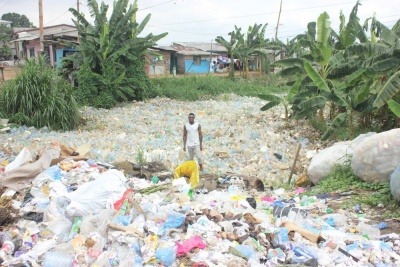WasteAid appeal raises £168,000 to tackle ocean plastic pollution

The appeal, which was supported by waste management company Biffa, ran between May and July 2019 and aimed to highlight the need for better waste management around the world to prevent plastic pollution and climate change emissions.
The ‘Widening the Net’ appeal sought to underscore how the implications of poor waste management in disadvantaged communities are wide-reaching for both human health and the environment.
A 2018 report by WasteAid and the Chartered Institute of Wastes Management (CIWM) revealed that two thirds of households in lower income countries have no access to waste collection services. This can lead to poor air quality and unsanitary conditions, causing illness and disease that has a devastating effect on communities and particularly on children.
Wildlife is also affected – in Cameroon, mangrove forests, and turtle and manatee populations are also at risk from the impact of plastic pollution.
The total raised in WasteAid’s appeal includes £80,076 of funding from the UK Government, which matched each donation from the public pound for pound, which will be used to build a plastics recycling training centre in the coastal city of Douala, Cameroon.
The plastics recycling centre will not only encourage recycling and provide local communities with the tools and knowledge to tackle plastic pollution, but it will also provide residents with job opportunities and life-long skills by training them to make useful products such as paving tiles from low-density polyethylene (LDPE) plastic.
WasteAid is currently training 100 people in a similar project in The Gambia and hopes the work in Cameroon will be just as successful.
International Development Secretary Alok Sharma said: “I am delighted the UK government has matched the British public’s generous donations to WasteAid’s ‘Widening the Net’ appeal, helping to raise more than £160,000.
“This funding will help train people across Cameroon to collect and recycle plastic waste, especially in areas where rubbish is not collected, allowing them to take an active role in protecting their environment.”
Zoë Lenkiewicz, Head of Programmes and Engagement of WasteAid, said: “We are extremely grateful to everyone who supported our appeal to help stop plastic pollution in ecologically fragile places like the Cameroon estuary. It is only through the generosity of our supporters that we can continue to train communities around the world to manage their waste in a safe and sustainable way.”
Read more about WasteAid’s projects and appeals on the organisation’s website.





